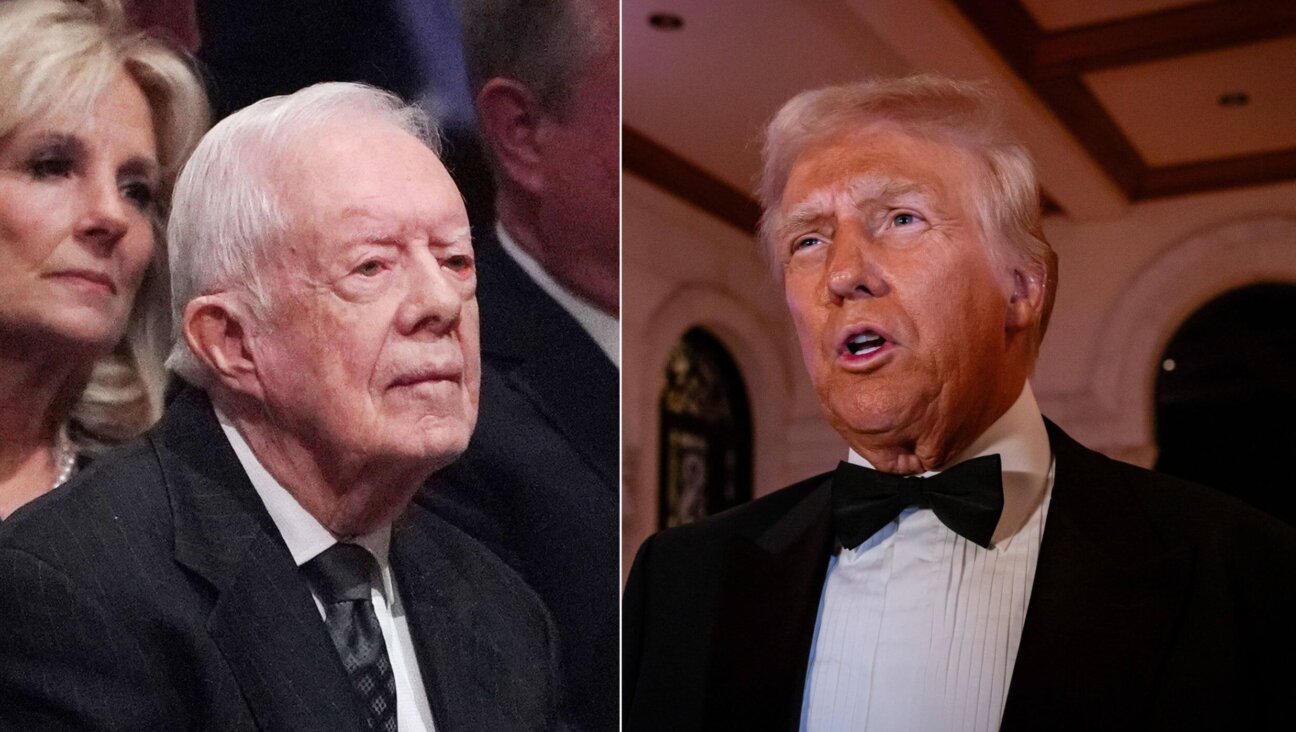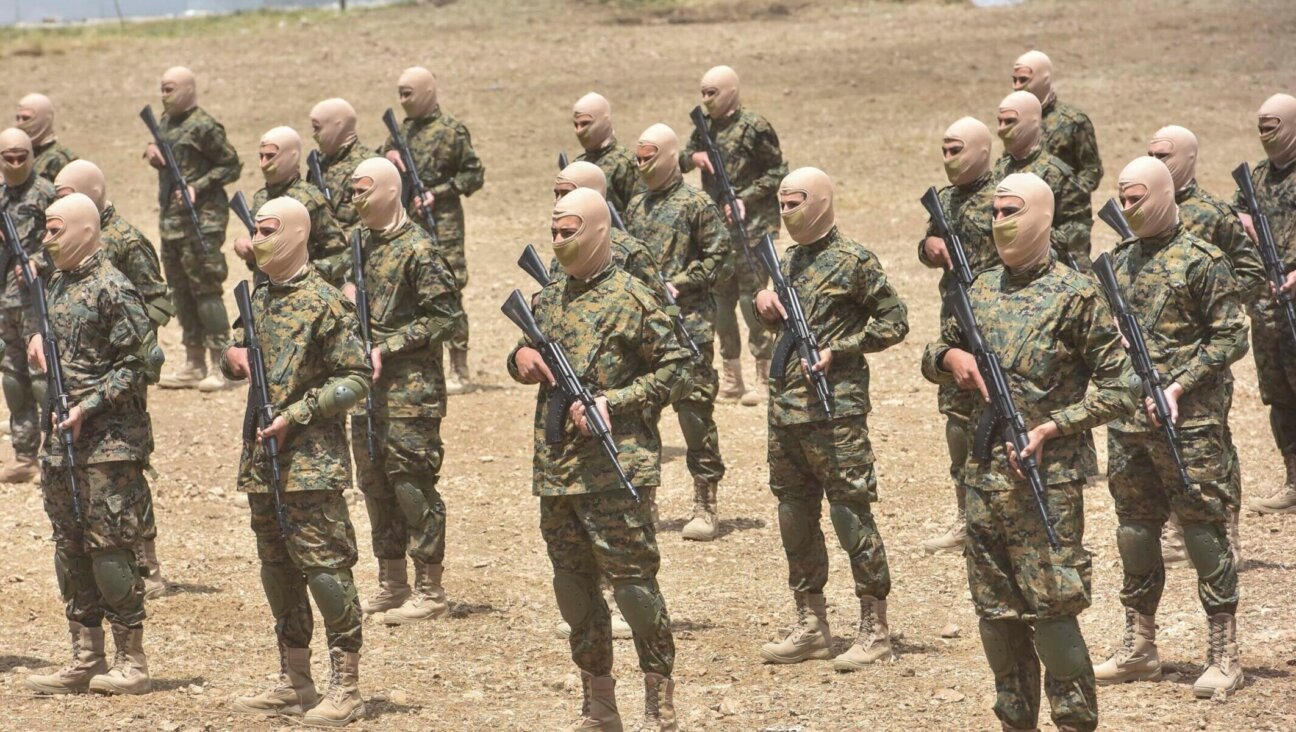Israel Defense Minister Moshe Yaalon Says No ‘Land for Peace’

Hardliner: Israeli defense minister Moshe Yaalon, right, chats with Defense Secretary Chuck Hagel during a recent visit. Image by getty images
Israeli Defense Minister Moshe Ya’alon inveighed against territorial compromise and blamed the Palestinian Authority for the recent failed peace talks in a wide-ranging policy address.
Speaking on a broad spectrum of security challenges Tuesday at the Herzliya Conference, a policy conference at the Interdisciplinary Center Herzliya, an Israeli university, Ya’alon said the Israeli-Palestinian conflict is not about territorial disputes, but rather centers on Palestinian refusal to accept a Jewish state. He blamed Palestinian Authority President Mahmoud Abbas for refusing to accept Israel as a Jewish state and for insisting on the return of Palestinian refugees to Israel.
“I think we made a mistake with land for peace,” Ya’alon said. “The conflict is not about the establishment of a Palestinian state. It’s about the existence of a Jewish national home.”
Referencing a series of speeches by various Israeli government ministers on Sunday calling for a range of responses to the Israeli-Palestinian impasse, Ya’alon said Israel should maintain the status quo and focus on other regional threats.
Ya’alon said that Israel faces threats from global jihad organizations, as well as Iranian-backed terrorist groups such as Hezbollah in Lebanon and Hamas in Gaza. He said Israel has kept relative calm on its borders due to a defense policy focused on deterrence.
“When someone threatens us they immediately feel the price,” he said. He also said that Israel has found a shared interest with Sunni states in countering radical Shi’ite organizations financed by Iran.
“When I look at the Middle East, there’s no conflict the Iranians aren’t involved in,” Ya’alon said. “The Iranian threat is not only the push for nuclear weapons. It’s a push against regimes in which the West has an interest.”
Ya’alon called for the world powers negotiating with Iran to increase pressure on Iran, and said that Iran is using the negotiations as a way to improve its economy while moving toward attaining nuclear weapons.
In Iran, economic pressure has fallen, internal instability has fallen,” he said. “This will bring us to a situation where they’ll be able to restrain themselves while being able to rehabilitate their economy and be a [nuclear] threshold state so they’ll be able to move forward and become a nuclear state.”
A message from our Publisher & CEO Rachel Fishman Feddersen

I hope you appreciated this article. Before you go, I’d like to ask you to please support the Forward’s award-winning, nonprofit journalism so that we can be prepared for whatever news 2025 brings.
At a time when other newsrooms are closing or cutting back, the Forward has removed its paywall and invested additional resources to report on the ground from Israel and around the U.S. on the impact of the war, rising antisemitism and polarized discourse.
Readers like you make it all possible. Support our work by becoming a Forward Member and connect with our journalism and your community.
— Rachel Fishman Feddersen, Publisher and CEO























